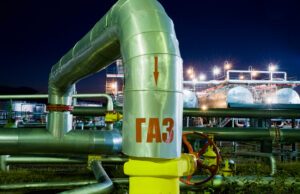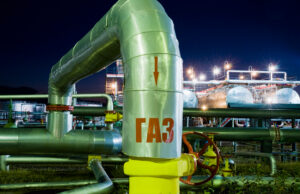
European Union leaders have agreed on a plan to block more than two-thirds of Russian oil imports.
The ban will only affect oil that arrives by sea but not pipeline oil, following opposition from Hungary.
European Council chief Charles Michel said the deal cut off “a huge source of financing” for the Russian war machine.
It is part of a sixth package of sanctions approved at a summit in Brussels, which all 27 member states have had to agree on.
Russia currently supplies 27% of the EU’s imported oil and 40% of its gas. The EU pays Russia around €400bn ($430bn, £341bn) a year in return.
So far, no sanctions on Russian gas exports to the EU have been put in place, although plans to open a new gas pipeline from Russia to Germany have been frozen.
EU members spent hours struggling to resolve their differences over the ban on Russian oil imports, with Hungary its main opponent.
The compromise followed weeks of wrangling until it was agreed there would be “a temporary exemption for oil that comes through pipelines to the EU”, Mr Michel told reporters.
Because of this, the immediate sanctions will affect only Russian oil being transported into the EU over sea – two-thirds of the total imported from Russia.
But in practice, European Commission President Ursula von der Leyen said the scope of the ban would be wider, because Germany and Poland have volunteered to wind down their own pipeline imports by the end of this year.
“Left over is around 10-11% that is covered by the southern Druzhba,” Ms Von der Leyen said, referring to the Russian pipeline supplying oil to Hungary, Slovakia and the Czech Republic.
The European Council will revisit this exemption “as soon as possible”, she added.
Read more:
EU agrees compromise deal on banning Russian Oil imports
